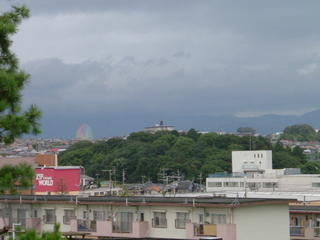The economy: stupid?

We are currently awaiting modelling contracts from H&M.
In today's Pacific Rivalry class the lecture was on Japan's post-war economic success. Prof. Scott's lecture had two main thrusts; 1) it wasn't an "Economic Miracle" as some described, but very easily explainable, and 2) people only saw it as an economic miracle because they weren't paying attention to Japan. As a result ... well, Scott mentioned how the U.S. doesn't have a TV industry anymore. A quick canvas of the class revealed that most of us own Japanese TVs. For my part, I was talking to my host dad, a car salesman, the other night. He asked me for the names of Japanese car firms. I rattled off eight and still hurt his feelings cause I missed off Mazda, which he works for. Then he asked me to name some British car firms. The only one I could come up with was Rover, recently sold to the Chinese.
There's a lesson here, but I'm not sure what it is. I reckon most people from around the world, if asked, would like Japan's economic strength, but would they want the societal effects? (For example: my host dad is away at work most of the week, making me wonder who'd want to buy a car at 10pm on a Sunday night. And yesterday I found out one of my host brothers has got a job with Mitsubishi, which means he has to live in a company dorm in a different prefecture.) I'd give a thumbs down, myself.
On an interesting (and international) note, I saw this op-ed piece in the Japan Times the other day, in which this Indian chap really lays into China for its thuggish policy towards both India and Japan, and states that because of this, the two countries are now moving closer together. Given that the guy works at "the privately funded Center for Policy Research in New Delhi" I had him down as your typical free-market loon who will say anything just to piss off the Commies. Then I saw this in the Mainichi. "Japan, India agree on comprehensive energy tieup"? Ooh daddy, I've been a bad boy. Ooh daddy! Ooooh! Energy is one of the key areas of potential conflict in the future for Japan and China. This really does look like they're getting closer at China's expense. For what it's worth, I think the future will be more of a multipolar world than a unipolar one, organised around regional centres of economic and political power, such as China, India, the US, EU (economic power? *snort*) and Japan. This seems to confirm my theory.
Labels: photography, university



